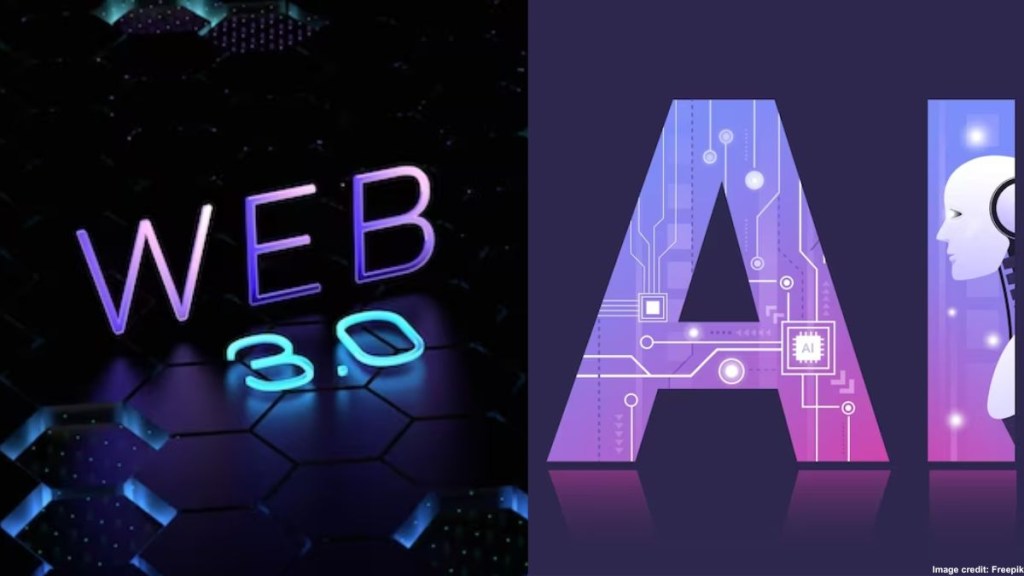Digital revolution seems to be dictated by how artificial intelligence (AI) will progress, with the belief that Web3.0 will also play a part. It’s believed that Web3.0-based developments will help draft the generative AI landscape that can drive technological innovations. “I believe Web3.0 Generative AI is the use of algorithms and techniques in the context of Web3.0 technology, offering possibilities for innovation and expression on the web,” Sumit Gupta, founder, Viral Pitch, an influencer marketing platform, told FE Blockchain.
In the digital context, generative AI in Web3.0 can help drive users’ experience. According to Linkedln, an employment-focused social media platform, generative AI’s usage in Web3.0 can develop preferred avatars and other game accessories, based on the needs of Web3.0 users. The platform can also create personalised non-fungible tokens (NFTs) and decentralised applications (dApps) through machine learning, which can lead to mainstream acceptance of Web3.0 platforms. However, Deltec Bank, a corporate bank, suggests that generative AI in Web3.0 can construct deepfakes which can be a threat to metaverse, and can also give rise to ethical considerations due to data biasness.
“I think Web3.0 generative AI merges blockchain and smart contracts to produce digital assets. It can revolutionise creation and ownership of content such as art, music, and virtual items, granting artists control over their work, authenticity, and monetisation opportunities,” Imtiaz Bellary, managing director, Engati, an AI chatbot platform, stated.
A survey by Botco.ai, a conversational marketing platform, highlighted that 66% of companies applying generative AI for Web3.0 marketing saw an upward trend in return on investment (ROI), while 43% and 22% of companies clocked a 2x ROI and 3x ROI, respectively. Insights from the survey also revealed that ChatGPT is the most used generative AI for Web3.0 marketing, as stated by 55% of respondents. Other used generative AIs comprise Copy.ai (42%), Jasper.ai (36%), Peppertype (29%), Lensa (28%), DALL-E (25%), and Midjourney (24%). Challenges in adoption of generative AI for Web3.0 marketing, as portrayed by the survey, include data scarcity (31%), poor content quality or inaccuracies (29%), and generative AI’s unethical biases (24%).
As per Grand View Research, a market intelligence firm, global generative AI market size will clock a 35.6% compound annual growth rate (CAGR) for 2023-30. Furthermore, the firm mentioned that global Web3.0 blockchain market will reach $33.53 billion by 2030, at a 47.1% CAGR. Moreover, future of generative AI in Web3.0 can be helpful for adoption of decentralised networks across different industries. Information on Medium’s website, an online publishing platform, emphasised on importance of personalised content, data streams, and decentralisation for growth of generative AI in Web3.0 in upcoming years.
“As decentralised technologies and generative AI models continue to advance, we expect emergence of AI ecosystems where users have ownership and control over their data and AI systems. However, challenges related to scalability, governance, and regulatory frameworks should be addressed for Web3.0 generative AI to reach its potential,” Balaji Viswanathan, MD and CEO, Expleo India, a technology, engineering and consulting firm, concluded.

